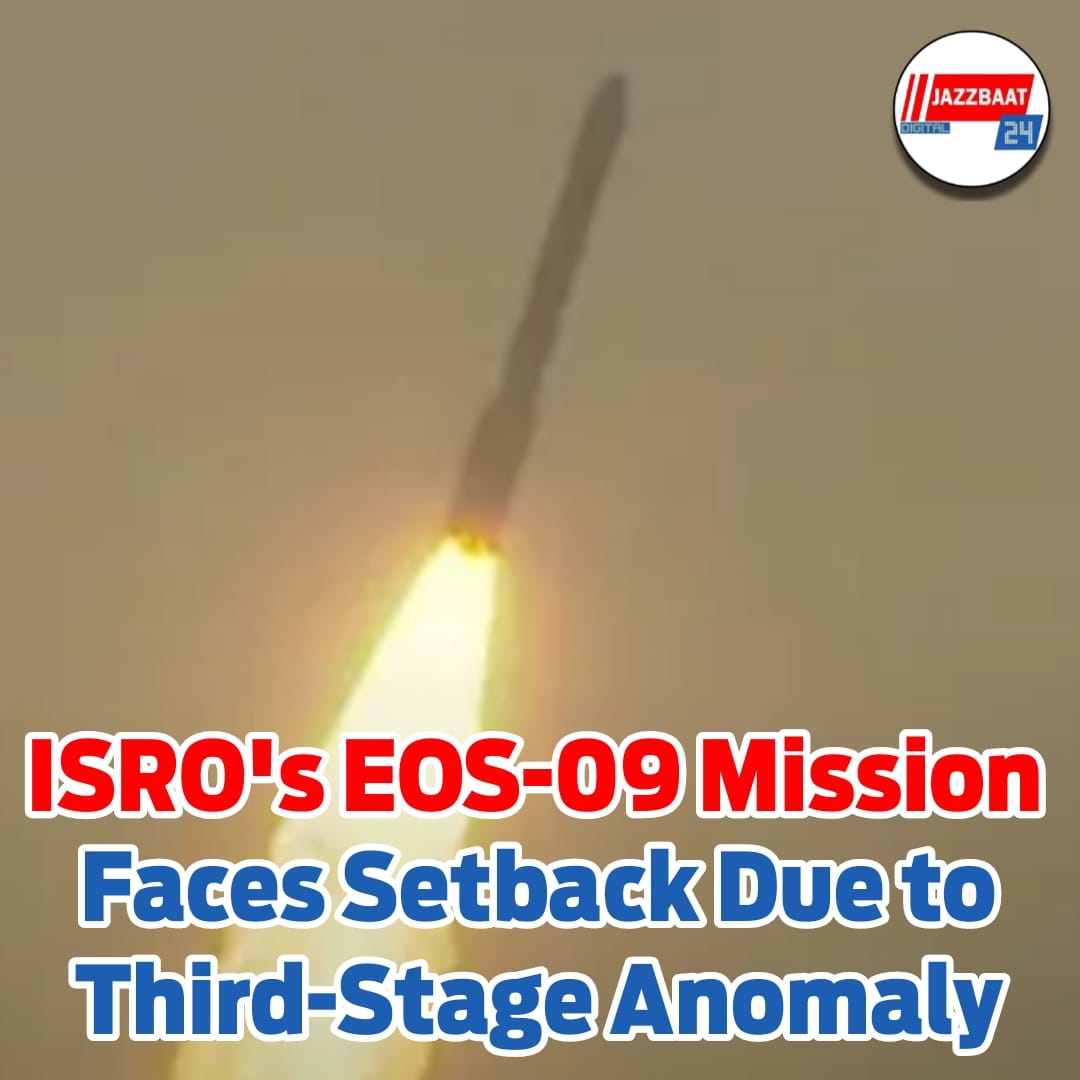
Pratiksha Ghosh
Sriharikota, May 18, 2025 — The Indian Space Research Organisation (ISRO) , encountered a setback on early Sunday morning when its 101st mission, aimed at deploying the Earth Observation Satellite EOS-09, failed to achieve its intended orbit due to an anomaly in the third stage of the launch vehicle.
The Polar Satellite Launch Vehicle (PSLV-C61) lifted off at 5:59 AM IST from the Satish Dhawan Space Centre in Sriharikota. While the first and second stages performed as expected, ISRO Chairman Dr. V. Narayanan reported that the mission could not be accomplished as planned. He stated, "The PSLV is a four-stage vehicle, and up to the second stage, the performance was normal. The third stage motor started perfectly, but during its functioning, we observed an anomaly, and the mission could not be accomplished" .
Preliminary assessments suggest a drop in chamber pressure in the third-stage motor case as the cause of the failure . ISRO has constituted a Failure Analysis Committee to investigate the issue thoroughly and determine the exact cause of the malfunction .
The EOS-09 satellite, equipped with a Synthetic Aperture Radar (SAR), was designed to enhance India's surveillance capabilities and provide reliable remote sensing data for various applications, including agriculture, forestry, water resources, and disaster management . The satellite had a planned mission life of five years and was intended to be placed into a sun-synchronous polar orbit.
This mission marked the 63rd flight of the PSLV and the 27th using the PSLV-XL configuration. Despite this setback, the PSLV has maintained a strong track record, with only two previous failures since its inception in the 1990s.
ISRO therefore, remains committed to examined the failure and implementing necessary measures to elevate the reliability of future missions. The organisation continues to play a crucial role in advancing India's space capabilities and contributing to global space research.